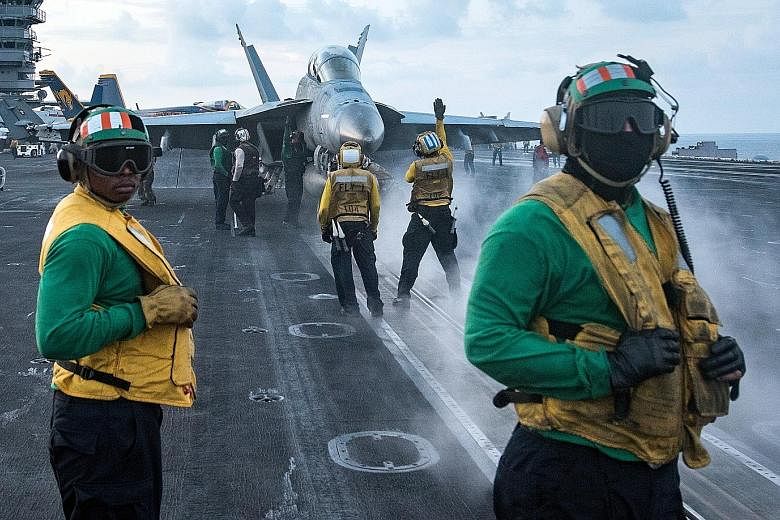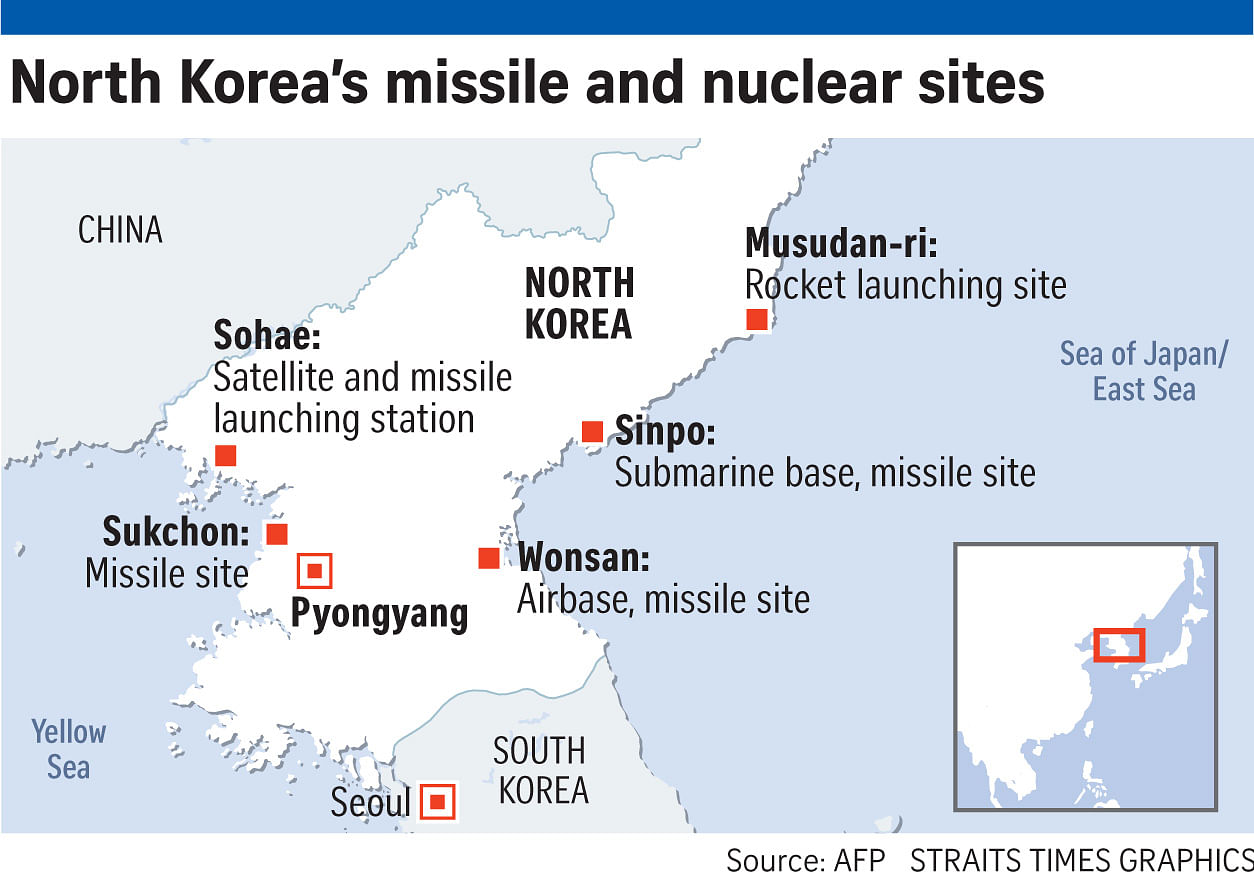WASHINGTON • United States President Donald Trump's deployment of an aircraft carrier to the waters off the Korean peninsula has raised tensions across East Asia. But this conceals a lack of better options for dealing with the provocations of the rogue North Korea regime.
Chinese President Xi Jinping did not make any public commitment to tighten the pressure on Pyongyang during his meeting last week with Mr Trump. Even privately, officials said, he was circumspect.
And an attack on North Korea carries far greater risk than the missile strike Mr Trump ordered last week to punish Syrian President Bashar al-Assad for his deadly chemical weapons attack.
That leaves the White House in a bind on a security issue that Mr Trump has described as the most pressing of his presidency. He warned before the meeting with Mr Xi that the United States would act alone against North Korea if China did not join his pressure campaign.
A senior administration official expressed hope that the productive tone of the meeting would eventually lead to further Chinese actions.
But Mr Trump's missile strike could play both ways: Administration officials said it would convince Mr Xi of Mr Trump's resolve, while some experts said it would reinforce fears in Beijing that he is erratic and unpredictable.
Flexing America's military muscle alone is unlikely to deter North Korean dictator Kim Jong Un from testing nuclear bombs and ballistic missiles.
Former president Barack Obama ordered the aircraft carrier USS George Washington into the Yellow Sea twice to intimidate Mr Kim's father Kim Jong Il, without success.
Mr Jeffrey Bader, who advised Mr Obama on China, said this was deja vu. "They have signalled a new approach, but they are discovering that the new approaches are not particularly attractive."
The White House is likely to pursue secondary sanctions, targeting Chinese firms and banks that help North Korea earn foreign currency and fund its weapons programmes.
The question is whether Beijing will cooperate, and if it does not, whether Mr Trump will impose the sanctions unilaterally, even at the risk of rupturing the relationship between Washington and Beijing.
On Sunday, US Secretary of State Rex Tillerson said Mr Xi agreed with Mr Trump that "action has to be taken".
On Monday, China agreed with South Korea to impose tougher sanctions on North Korea if it carried out nuclear or intercontinental ballistic missile tests, a senior South Korean diplomat said.
The announcement seemed intended to dissuade North Korea from conducting a test to mark a national holiday this week.
On Monday, Mr Wu Dawei, the top Chinese envoy for international efforts to end North Korea's nuclear weapons programme, met his South Korean counterpart, Mr Kim Hong Kyun, in Seoul to discuss what to do about the North's advancing nuclear and missile programmes.
In recent weeks, Mr Trump's aides warned that they were not ruling out "military options". At the weekend, Mr Tillerson said the US strike against Syria was a signal to other countries that "a response is likely" if they pose a danger.
Analysts and officials in South Korea fear that a pre-emptive military attack against North Korea - even one limited to taking out nuclear and missile bases - could set off a catastrophic retaliation and a full-scale war. Seoul lies within range of North Korean artillery and rockets amassed along the border.
Some US analysts argue that Mr Trump's unpredictability could give him leverage with the Chinese.
Mr Michael Green, an Asia adviser to president George W. Bush, recalled negotiating with China and North Korea when Mr Bush began his invasion of Iraq in 2003.
The Chinese noticeably shifted their tone, he said, and put more pressure on the North Koreans.
NYTIMES


